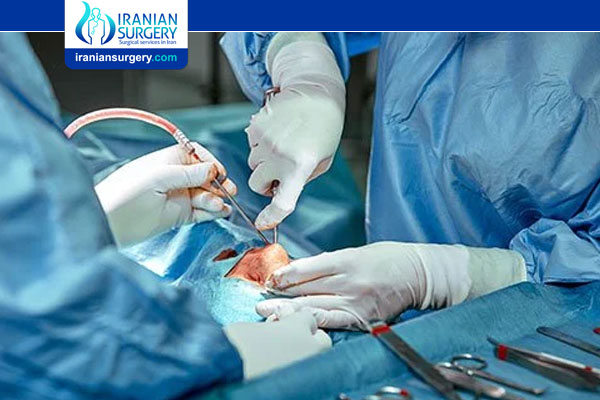Nasal Polyp Removal Recovery
Nasal polyps are benign (noncancerous) growths in the lining of your nose or sinuses that can significantly impact your breathing. If medications haven’t been successful with shrinking them, you might have them surgically removed. Keep reading to learn about recovery from nasal polyps surgery in this article.
How Long Does Nasal Polyp Surgery Take
Nasal polyp surgery itself usually lasts a few hours. If you’re undergoing general anesthesia, you may spend the day in surgery preparation and post-surgery recovery.
In most cases, you should be able to go home the same day as your surgery. Some people may need to stay at the hospital overnight. Make sure you’ve arranged for a ride home and for someone to stay with you overnight to help monitor your condition.
What To Expect During Nasal Polyp Surgery
Nasal polyp surgery is conducted at a hospital or an outpatient facility. You may be prepped by a nurse or an anesthesiologist before undergoing your operation.
A surgeon performs nasal polypectomy entirely through your nose. Unlike other types of surgery, no incisions are made to access the polyps. You’ll need local or possibly general anesthesia, depending on the extent of the extractions from your nasal cavities.
With an endoscopic nasal polypectomy, the surgeon inserts a thin tube with a small camera into your nasal cavity. This helps them see the polyps more clearly, especially when the growths are located deep in your cavities. Once your surgeon locates the polyps, they’ll remove them with a microdebrider or surgical graspers.
Surgery Follow-Up
Nasal polyp surgery is an outpatient procedure, so you’ll be going home after you’ve recovered from anesthesia. This can take a couple of hours. During the surgery, your doctor will insert an endoscope (flexible, thin tube with a camera and light at the end of it) and tools, such as a microdebrider, through your nostrils to remove the polyps.
Your doctor will schedule a follow-up visit most likely within the first week after surgery. You’ll have several more appointments for about four to six weeks after surgery. At these appointments, you can expect your doctor to clean your nose and sinuses to remove any excess buildup and reduce the risk of scarring in the affected area.
Postoperative cleaning can be uncomfortable—your doctor might recommend that you take an over-the-counter (OTC) or prescription pain medication prior to these appointments. Bring someone with you in case you don’t feel up to driving afterward.
Nasal Polyp Removal Recovery Timeline
You can expect to be tired for about a week after nasal polyp surgery, so plan to be out of work for at least this amount of time. However, depending on your job duties, you might have to wait even longer.
After this procedure, you won’t be allowed to exercise at full capacity until two weeks have passed. This also means that you can’t lift anything heavier than five to 10 pounds, and you will need to avoid bending and straining as well.
The healing process is typically complete after four to six weeks.
Coping with Recovery
After nasal polyp surgery, you may have some side effects to deal with for up to six weeks as your body heals.
Immediately After Surgery
Immediately after surgery, you’ll have a gauze dressing below your nose to absorb blood. Your nose may continue to bleed for three to five days after surgery.2 This is normal. Change your gauze as needed as it becomes saturated with blood and dab your nose with a tissue.
Your doctor may pack your nose with gauze after surgery. If this is the case, do not remove the packing yourself. The doctor will do this at your first follow-up visit.
If the bleeding is continuous, tilt your head back a little bit and breathe slowly through your nose.3 OTC nasal sprays can also be used to help stop excess bleeding only if cleared by your surgeon. Contact your doctor if this treatment does not help to slow your bleeding.
Your nose will feel stuffy, or congested, and you may feel pressure in your sinuses for about a week after surgery due to swelling. Resist the urge to blow your nose—this can make your bleeding worse. Placing an ice pack on your nose can also help.
Sit in a semi-reclined position to help relieve pressure in your nose and sinuses. You might even consider sleeping with your upper body propped up for a few days to improve your breathing. The good news is your breathing should return to normal within two to three weeks after your surgery.
The Day After Surgery and Later
Beginning the day after surgery, you’ll perform sinus flushes (also called irrigations) twice per day. This usually involves squirting liquid, such as distilled water or saline, into your nostrils to rinse out blood and debris. Your doctor will provide specific instructions and teach you how to perform these flushes.
As with any surgery, you’ll have some pain after nasal polyp surgery. OTC pain medications, such as Tylenol, can help. But your doctor will probably prescribe pain medication to be used in the first few days after surgery.
However, anti-inflammatory medications, such as aspirin, Advil (ibuprofen), or other nonsteroidal anti-inflammatory drugs (NSAIDs) need to be avoided for two weeks after surgery. These medications can increase bleeding.
About Iranian Surgery
Iranian surgery is an online medical tourism platform where you can find the best otolaryngologist in Iran. The price of Nasal Polyp Removal in Iran can vary according to each individual’s case and will be determined by an in-person assessment with the doctor.
For more information about the cost of Nasal Polyp Removal in Iran and to schedule an appointment in advance, you can contact Iranian Surgery consultants via WhatsApp number 0098 901 929 0946. This service is completely free.
Source:
https://www.verywellhealth.com/nasal-polyps-surgery-recovery-5202535

